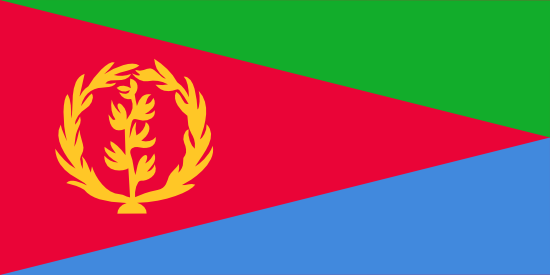
Health Insurance in Eritrea, Africa
Information expatriation
Capital City: Asmara
Total area: 117,600 km2
Population: 4,851,000
Money: Currency Converter
Time Zone: List of time zones by country
Calling Code: +291 XXX
Practical Information:
Health Product: Travel Insurance and Health insurance
Health Insurance information and Sanitary Risk: World Health Map
BLOG : Expat Health insurance Information
Here is a brief description of the healthcare system in the country:
· Eritrea's healthcare system is extremely underdeveloped and underfunded, even among the lowest globally. Infrastructure and resources are severely lacking.
· Basic care is intended to be provided free through a network of rural clinics and district hospitals. However, facilities are often ill-equipped with shortages of staff, supplies and medications.
· Only about 2.5% of GDP is spent on health. Services are centered in a few major towns and cities, leaving remote populations with little or no access.
· The country faces major public health challenges including an acute shortage of doctors, recurrent outbreaks of infectious diseases, and high rates of undernutrition.
· Private medical practice is not well-established. There are less than 1 doctor per 10,000 people.
· Primary health problems include malaria, respiratory/gastrointestinal infections, tuberculosis, HIV/AIDS, maternal health issues and childhood nutritional deficiencies.
· Eritreans often cross borders for medical treatment in Sudan, Ethiopia or Djibouti when possible.
Here are some key health considerations for expatriates living in the country:
· Ensure comprehensive private international medical evacuation insurance is purchased. Local options will be extremely limited.
· Consider registering with the UN clinic in Asmara which has somewhat better resources than public facilities.
· Carry large supplies of any maintenance medications as availability is unreliable. Bring copies of prescriptions.
· Follow strict safety and hygiene protocols to prevent disease. Boil or treat all water, avoid risky foods.
· Obtain recommended vaccinations for the region like hepatitis A/B, typhoid, meningococcal and boosters.
· Bring over-the-counter medications for common ailments as these may be unavailable.
· French and Italian are commonly spoken among older generations. Learn basic health-related phrases in these.
· Monitor political stability closely as conflict could impact evacuation access.
· Avoid remote rural areas with little or no public infrastructure or services.
